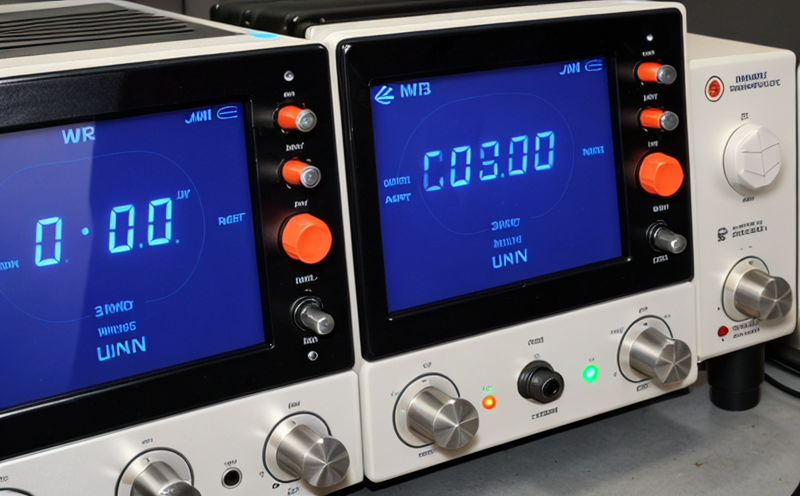ISO/IEC 24730 Location Tracking Wireless Communication Testing
The ISO/IEC 24730 standard is pivotal in ensuring that location tracking systems adhere to strict performance criteria, particularly within the realms of wireless communication and IoT devices. This service focuses on testing devices that use this protocol for accurate positioning information transmission, which is essential for applications ranging from smart home security systems to fleet management solutions.
Location tracking technology relies heavily on RF signals to determine a device's position accurately. The ISO/IEC 24730 standard establishes comprehensive requirements and test methods for wireless location tracking devices, ensuring that they meet stringent performance metrics across various environments. This includes testing for accuracy under different signal conditions, robustness against interference, and compatibility with existing infrastructure.
Our testing encompasses a wide range of scenarios to simulate real-world usage, including urban canyons where signals can be obstructed by tall buildings or dense foliage. By using advanced simulation software and high-fidelity test environments, we ensure that every aspect of the device's performance is thoroughly evaluated under controlled conditions.
One key area of focus is compliance with international standards such as ISO/IEC 24730-1 for system requirements, ISO/IEC 24730-2 for test procedures, and IEEE 802.15.4 for wireless communication protocols used in IoT devices. These standards provide a framework that ensures interoperability among different products from various manufacturers.
Another critical aspect of our testing is ensuring the security of location data transmitted by these devices. With increasing concerns over privacy and data protection, it's crucial to verify that location tracking systems comply with relevant cybersecurity practices outlined in ISO/IEC 27001 and GDPR guidelines. Our team conducts rigorous assessments to guarantee that sensitive information remains secure during transmission.
For our clients who are developing new products or improving existing ones, this service offers invaluable insights into meeting regulatory requirements globally while enhancing product reliability and performance. It also helps identify potential issues early in the design process so that necessary adjustments can be made before going to market.
Why It Matters
Accurate location tracking is fundamental for numerous applications, including smart home automation systems, asset management, and personal safety devices. Ensuring compliance with ISO/IEC 24730 not only enhances the reliability of these technologies but also builds consumer trust by demonstrating adherence to high-quality standards.
- Guarantees interoperability among different products from various manufacturers
- Ensures robust performance even in challenging environments like urban areas or dense forests
- Protects user privacy and data integrity through stringent security measures
- Promotes global market access by aligning with international standards
- Reduces risks associated with non-compliance penalties and legal disputes
- Enhances brand reputation as a leader in quality assurance for IoT solutions
In today's interconnected world, where smart devices play an increasingly important role in our daily lives, reliability and accuracy are paramount. By investing in thorough testing according to ISO/IEC 24730 standards, companies can differentiate themselves from competitors by offering superior products that meet the highest industry benchmarks.
Scope and Methodology
| Test Parameter | Description |
|---|---|
| Signal Strength Measurement | Determines the strength of RF signals received by the device under test. |
| Position Accuracy Verification | Evaluates how closely the reported position aligns with actual geographical coordinates. |
| Interference Resistance Testing | Assesses the ability of the device to function correctly when subjected to various types of interference. |
| Compliance With ISO/IEC Standards | Verifies adherence to relevant international standards for wireless communication and security. |
The testing process involves multiple stages, starting with initial setup where the device is configured according to specified parameters. This is followed by comprehensive performance evaluations under controlled conditions designed to mimic real-world scenarios. Finally, detailed reports are generated summarizing all findings along with recommendations for improvement if needed.
Our experts utilize state-of-the-art equipment such as spectrum analyzers and GPS simulators to conduct these tests accurately and reliably. They also employ sophisticated software tools that allow for precise measurement and analysis of test results.
Competitive Advantage and Market Impact
- Pioneers in providing ISO/IEC 24730 compliant testing services specifically tailored to the needs of smart home and IoT device manufacturers
- Serves as a benchmark for ensuring superior product quality and reliability
- Achieves significant cost savings by identifying issues early in the development cycle rather than after launch
- Facilitates faster time-to-market for innovative products through accelerated testing processes
- Bolsters brand reputation among consumers seeking trustworthy, high-quality IoT solutions
- Supports regulatory compliance efforts across multiple jurisdictions worldwide
The implementation of ISO/IEC 24730 compliant location tracking wireless communication testing provides a competitive edge for businesses operating in this rapidly evolving sector. It sets the stage for successful market entry and sustained growth by addressing key challenges faced by both developers and end users alike.





